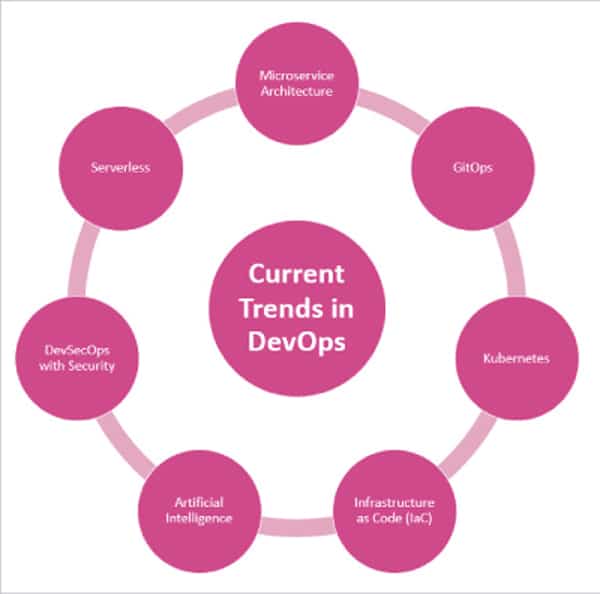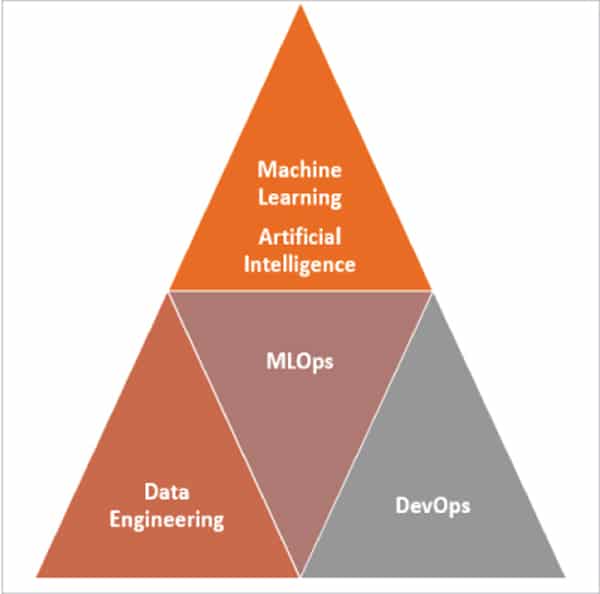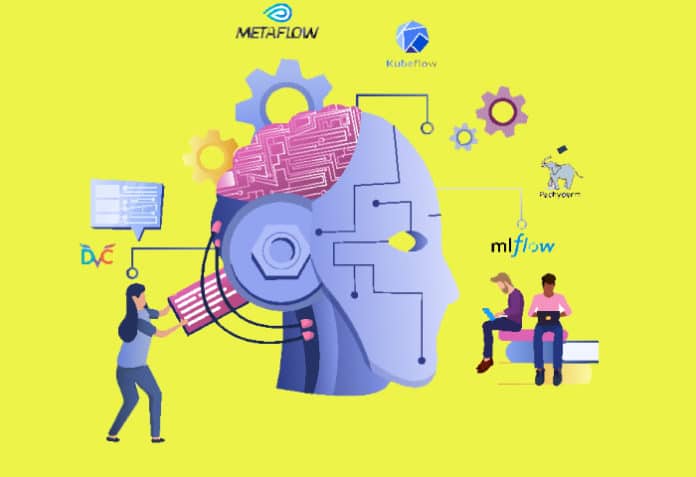MLOps makes budgeting overall resources and computing easier. It also helps to automate end-to-end machine learning workflows and improve team collaboration. This article will introduce you to a few free and open source tools for MLOps.
The impact of the pandemic on different industries, organisations, project development teams and consumers is still being assessed, and its consequences will be felt for years to come. However, the pandemic years have spurred more innovation and inventions than ever before with the help of developers working remotely in a virtual work environment.
Technology has helped people to work, acquire and receive services, and connect with each other for better performance. Developers and DevOps experts suddenly have a plethora of possibilities for rapid improvements and new developments at work.
DevOps is associated with assorted domains for multiple applications. The corporate world is migrating to DevOps based deployment and execution of projects for better performance.
Integration of DevOps with artificial intelligence
Machine learning (ML) operations, abbreviated as MLOps, integrate artificial intelligence (AI) and data science with contemporary DevOps processes. This helps intelligent applications to integrate with DevOps along with data analytics and feature engineering.
This boosts the ML life cycle process by creating a better environment for cooperation and communication amongst teams.
For a higher degree of efficiency, MLOps blends machine learning with pre-existing application development and IT operations. Machine learning also aids in the development of a strong automation system for quality control, pipelining, monitoring, and a range of other processes.
A great open source MLOps solution provides users with a platform that allows them to work with complete operational independence at a cheap cost and with total access to all essential resources. It gives enterprises greater space to cooperate and more freedom on one platform.
MLOps allows IT organisations to enhance efficiency in model deployment and governance while also automating the workflow’s repetitive manual tasks. As a result, it is being used in an increasing number of development projects.
A data science project focuses on leveraging data to develop a predictive model, which gives us a near-perfect outcome that mimics a real-world business scenario. When attempting to attain this goal, it’s easy to overlook the many other parts of a data science project, particularly the operational ones. Because ML projects are iterative in nature, keeping track of all the variables, configurations, and outcomes may be a challenging task in itself. Effective team cooperation is becoming increasingly important as data science teams get larger and more dispersed.
Free and open source tools for MLOps
A number of suites and platforms are available for the implementation and deployment of MLOps for different applications. A few key platforms, using which MLOps deployment and overall control on the process becomes easy for project managers and developers, are listed below.
Kubeflow
kubeflow.org
Open source MLOps platform Kubeflow makes orchestrating and deploying machine learning workflows very easy for developers. Machine learning training, pipeline building, and Jupyter notebook management are all supported by Kubeflow’s dedicated services and integrations. It’s easy to interface with frameworks like Istio, and can even perform TensorFlow training tasks without any issues.
MLflow
mlflow.org
This open source machine learning life cycle management platform provides several components for experiment tracking, project packaging, model deployment, and registry. Machine learning libraries such as TensorFlow and PyTorch may be easily integrated with MLflow to speed up the training, deployment, and maintenance of applications.
Data Version Control (DVC)
dvc.org
An open source tool for data science and machine learning applications, DVC is written in Python programming language. Data sets and machine learning models are managed and versioned in a Git-like fashion. With DVC, machine learning projects may be shared and replicated easily using a command-line interface.

Pachyderm
github.com/pachyderm/pachyderm
Pachyderm is an MLOps data pipeline and versioning leader. You can automate and scale your machine learning life cycle while ensuring reproducibility with its data foundation. It comes in a commercial Pachyderm Enterprise Edition and an open source Pachyderm Community Edition thanks to financing from Benchmark, Microsoft M12, and others. Using Pachyderm, customers can get their ML and AI initiatives off the ground faster, minimise their data processing and storage expenses, and comply with stringent data governance guidelines.
Metaflow
metaflow.org
ML models can be trained, deployed, and managed with ease using Metaflow, a Python based framework that merges machine learning, deep learning, and Big Data. Netflix created Metaflow as an open source MLOps platform that makes it simple to handle large scale enterprise data science initiatives.
Kedro
github.com/quantumblacklabs/kedro
A Python-written open source MLOps framework, Kedro helps data scientists write code that is easy to test, reproduce and maintain. Versioning and modularity are used in machine learning projects as part of the software engineering process. It provides pipeline visualisation, project templates, and the ability to distribute data science projects in a variety of ways.
Seldon Core
seldon.io/solutions/open-source-projects/core
Models can be converted into microservices using Seldon’s open source MLOps framework that provides a wide range of logging features and enhanced monitoring. Some of Seldon’s high-level capabilities make it easy to containerise ML models, evaluate their usability and security, and make them auditable by interacting with a number of services.
Flyte
flyte.org
Flyte is another open source MLOps tool for managing and maintaining Kubernetes-native machine learning operations, as well as automating them. It ensures that machine learning model execution is repeatable by recording model changes, versioning it, and containerising the model and its dependencies. Flyte is a Python library that supports complicated machine learning workflows written in Python, Java, and Scala.
ZenML
github.com/zenml-io/zenml
ZenML is an open source MLOps platform that incorporates machine learning tools like Jupyter notebooks to deploy ML models in a consistent and intuitive manner. It is used to build machine learning pipelines that can be replicated to produce ML projects.
MLRun
mlrun.org
MLRun is a freely available MLOps framework that assists in managing your machine learning pipeline from development to production deployment. It incorporates model tracking, automation, high efficiency, management and easy scalability into any ML process.
MLReef
mlreef.com
MLReef is an open source MLOps platform that is both robust and simple to use, offering options for newcomers, experienced users, and enterprises. It’s a complete machine learning platform designed to make ML development more dependable and efficient.

Bodywork
github.com/bodywork-ml/bodywork-core/
Bodywork is a framework for automating model training and deployment pipelines. It offers automation services for the repetitive operations that most people associate with DevOps. The Bodywork MLOps framework effectively delivers and executes code at the appropriate times. This procedure ensures that the models are well-trained and available at all times. It enables machine learning engineers to use K8s (Kubernetes) containers to deploy model-scoring services. It also aids ML engineers in the delivery of continuous code and deployment automation.
MLOps, with the integration of AI in DevOps, improves the efficiency, reliability, and security of application development and delivery. Businesses and their customers benefit from a more flexible software development life cycle. MLOps is appropriate for teams working collaboratively to design, develop, and deliver secure systems quickly for advanced applications. Through automation, collaboration, rapid feedback, and iterative improvement, MLOps enables AI experts, software engineers and operations teams to speed up the delivery of projects.



















































































